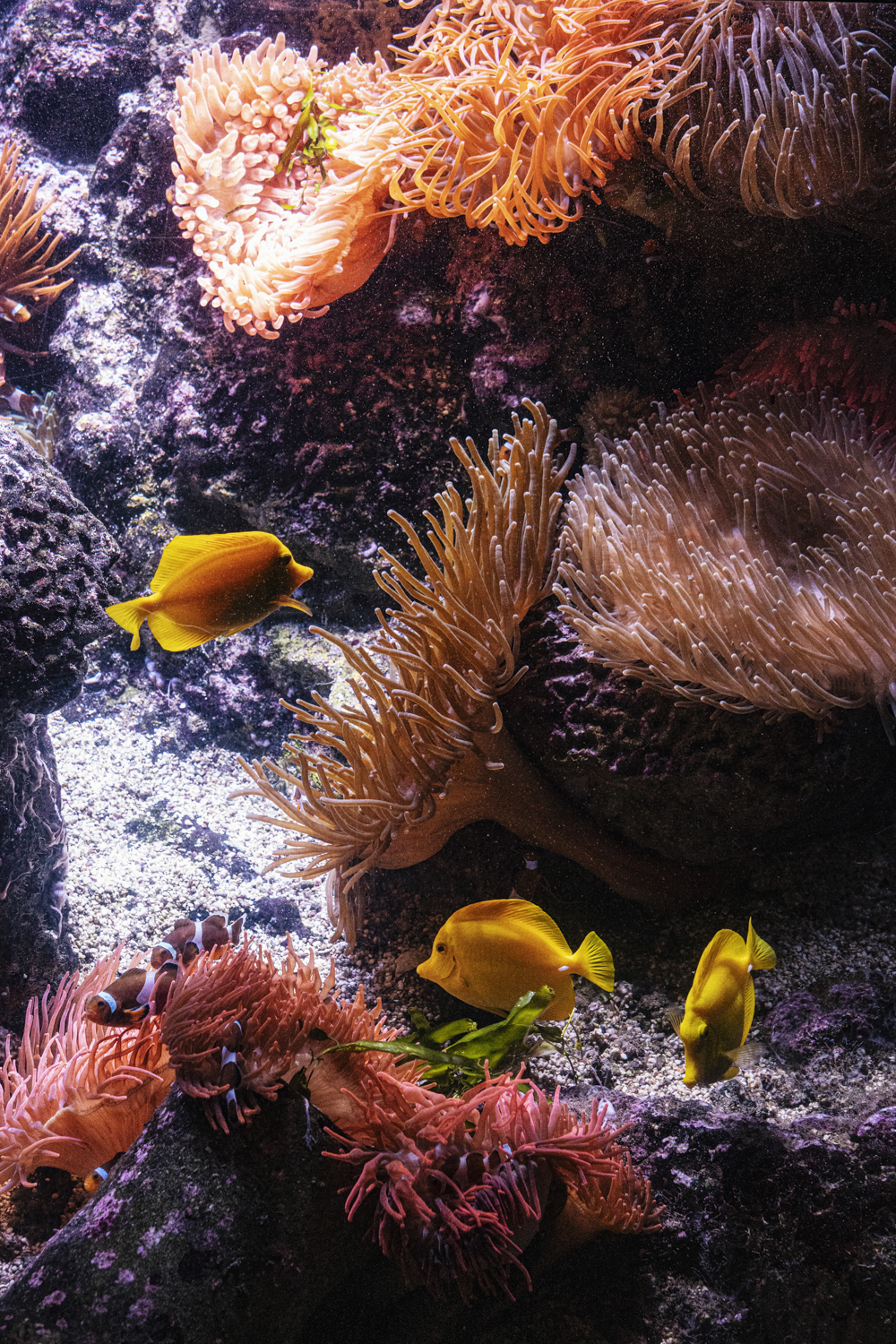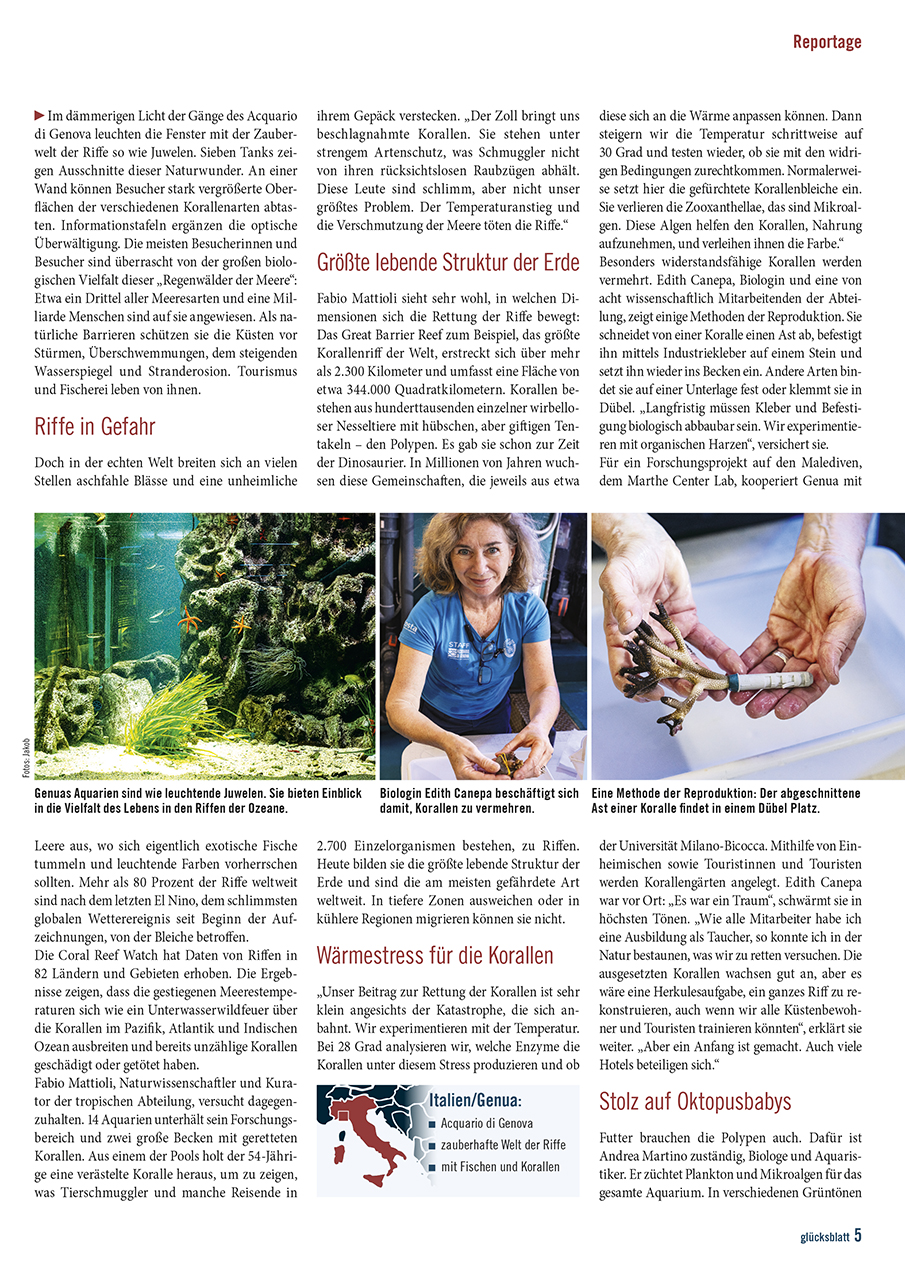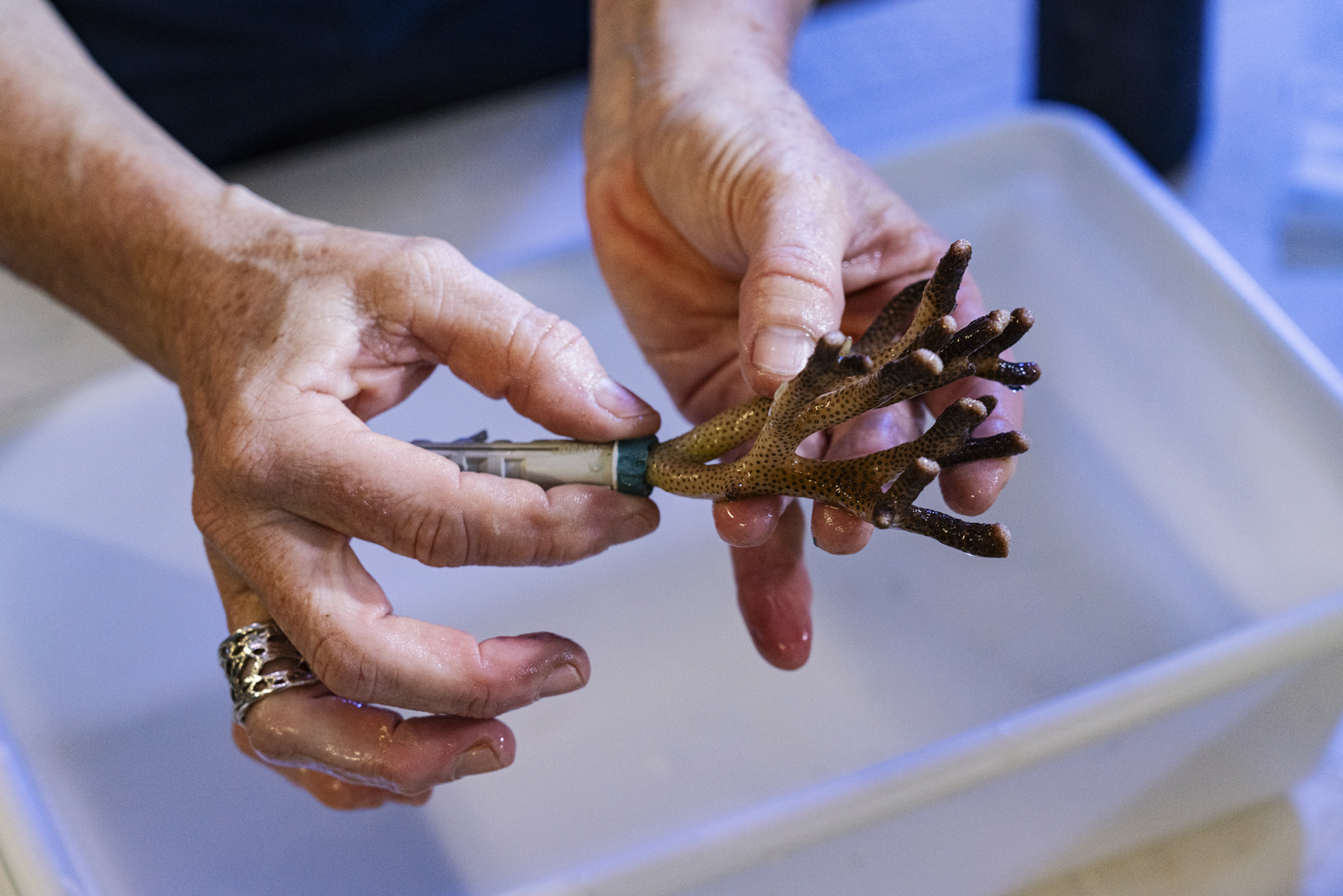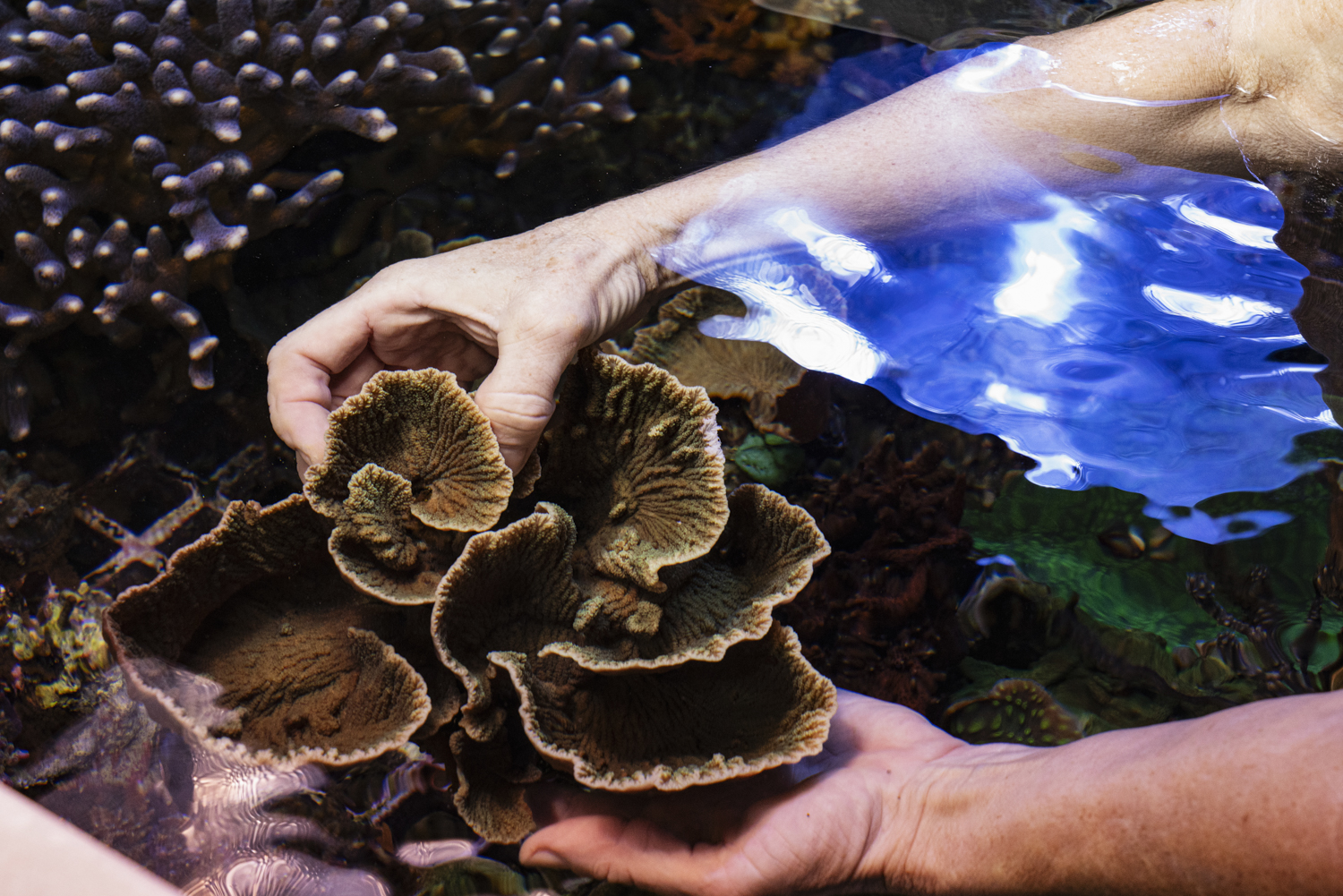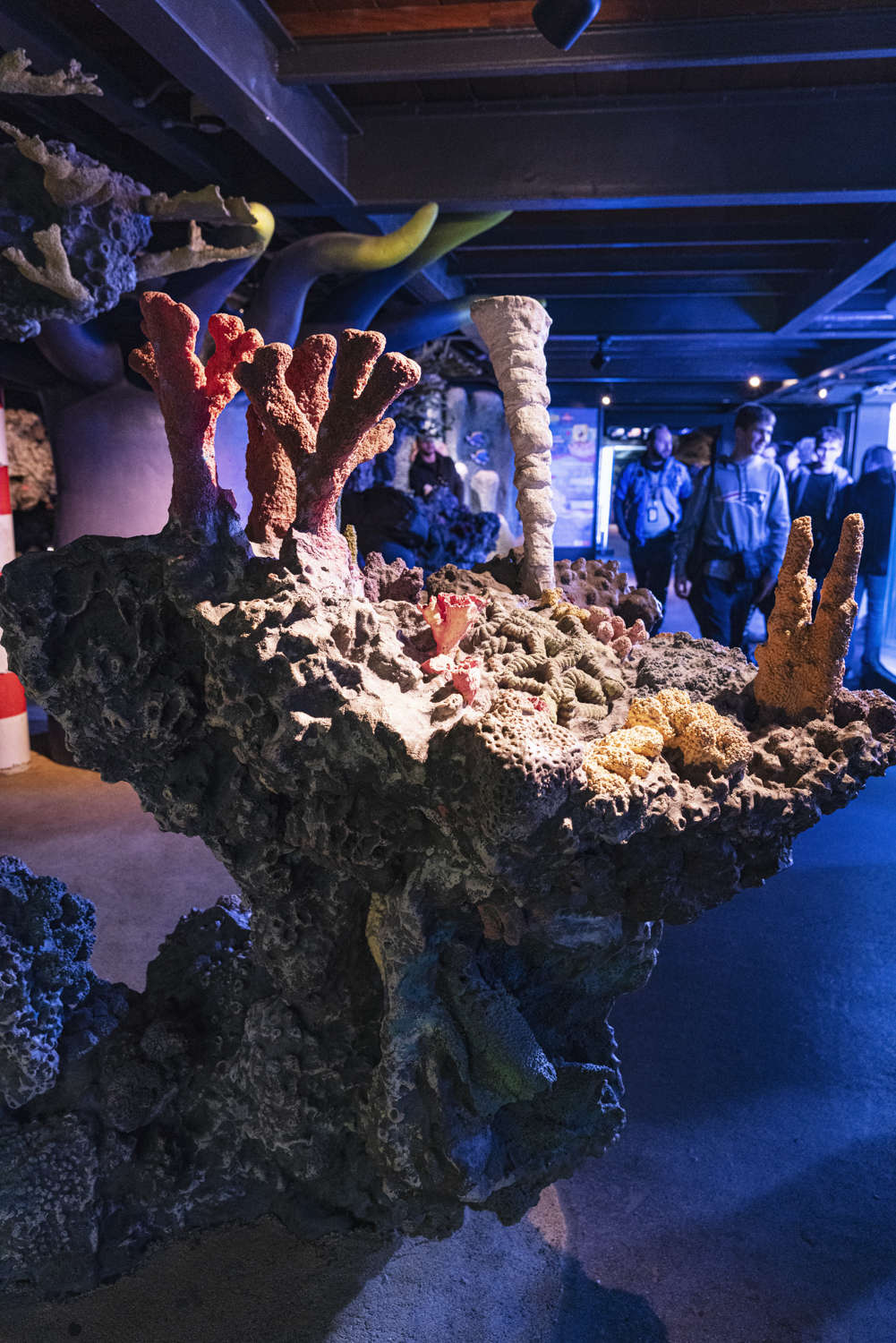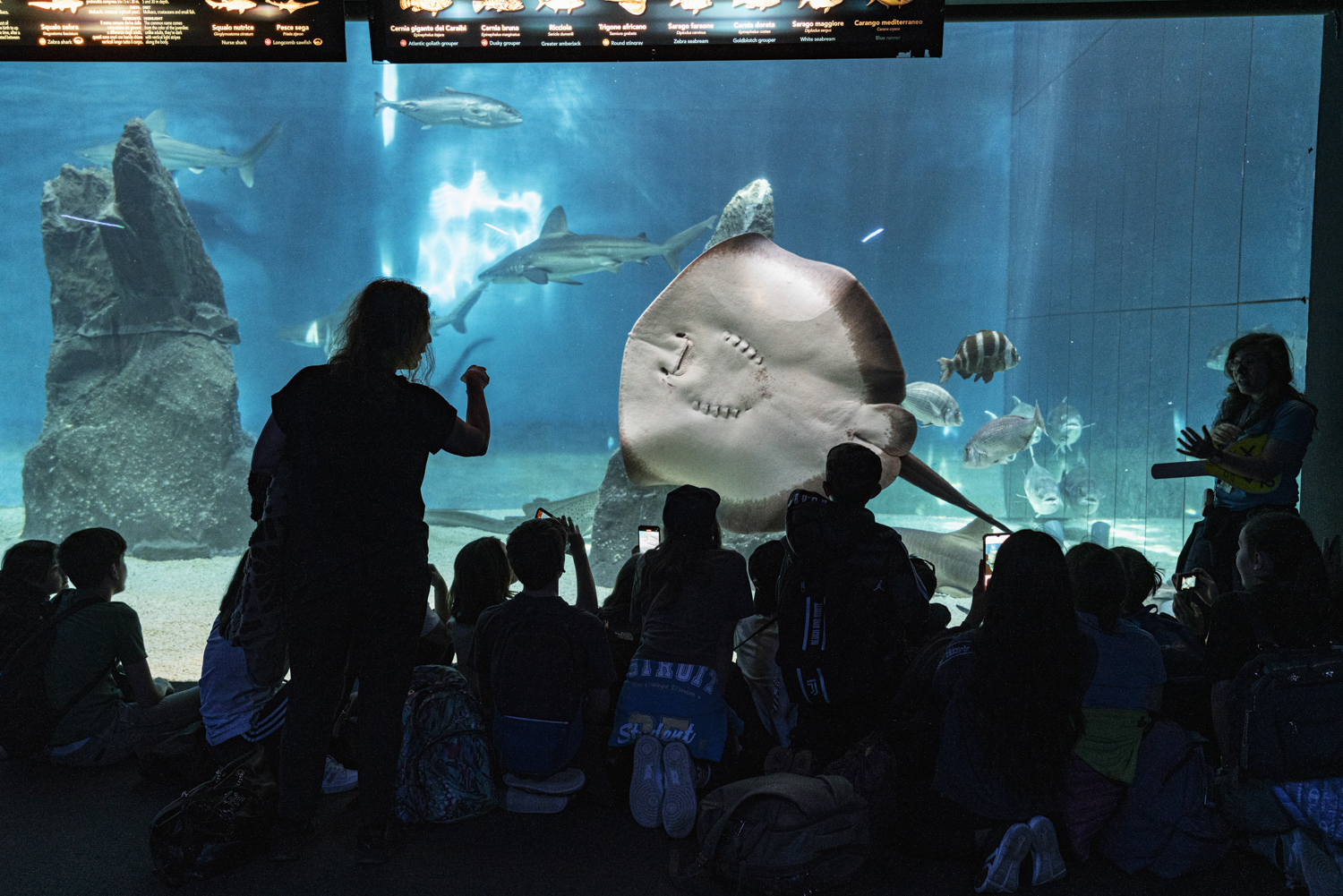Corals of Genoa
Coral Reef Watch has collected data from reefs in 82 countries and territories. The results show that high sea temperatures are spreading like an underwater wildfire across the corals in the Pacific, Atlantic and Indian Oceans and have already damaged or killed countless reefs.
Fabio Mattioli, 54, natural scientist and curator of the tropical department at the Aquario di Genoa, is trying to counteract this. His research department is internationally recognised for its coral breeding programme: the department is home to 2,700 specimens of 75 different species. It maintains 14 aquariums and two large tanks for corals rescued from customs.
"Our contribution to saving the corals is very small in view of the disaster that is looming. We are experimenting with temperature. At 28 degrees, we analyse which enzymes the corals produce under this stress and whether they can adapt to the heat. Then we gradually increase the temperature to 30 degrees and test again whether they can cope with the adverse conditions. Normally, this is when the dreaded coral bleaching begins. They lose the zooxanthellae, which are microalgae. These algae help the corals to absorb food and give them their colour."
Particularly resilient corals are being propagated. Edith Canepa, a biologist and one of eight research assistants in the department, demonstrates some of the reproduction methods. She cuts a branch from a coral, attaches it to a stone using industrial adhesive and places it back in the tank. She attaches other species to the substrate or clamps them into dowels. ‘In the long term, the glue and fastenings must be biodegradable, so we are experimenting with organic resins,’ she assures us.
Genoa is collaborating with the University of Milano Bicocca on a research project in the Maldives, the Marthe Center Lab. With the help of locals and tourists, coral gardens are being replanted. Edith Canepa was there. ‘The corals that have been released are growing well, but it would be a Herculean task to reconstruct an entire reef, even if we could train all coastal residents and tourists. But a start has been made.’


